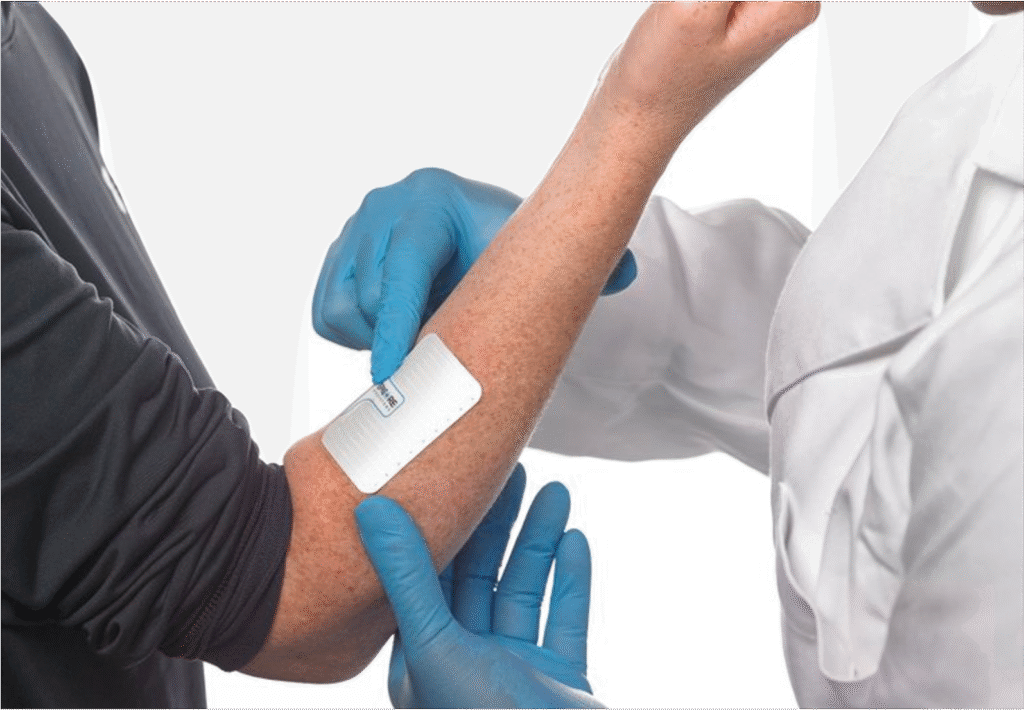Northwestern University researchers, in collaboration with Epicore Biosystems, have developed a wireless, wearable sweat patch that could transform how cystic fibrosis (CF) is monitored and treated—especially outside of clinical settings. This sticker-like device, worn on the wrist, measures key biomarkers in sweat with accuracy comparable to traditional lab-based tests, offering a noninvasive, real-time way to guide treatment decisions.
Cystic fibrosis is a genetic disorder that affects over 40,000 people in the U.S. It causes thick mucus buildup in the lungs and digestive tract, leading to chronic infections, breathing difficulties, and other complications. The disease is progressive and often life-shortening, though new CFTR modulator drugs have significantly improved outcomes by targeting the underlying protein dysfunction. However, there’s currently no standard method for monitoring how well these drugs work on a day-to-day basis outside of specialized clinics.
The new sweat patch addresses this gap. It contains two channels—one for measuring sweat volume and another for sweat chloride concentration, a key biomarker used to diagnose and monitor CF. Traditionally, sweat chloride tests are performed in clinical labs using bulky equipment. The patch simplifies this process: after a patient wears it during light activity, a physician can take a photo of the patch using a smartphone or tablet. Color changes on the patch indicate chloride levels and sweat volume, which can be analyzed to assess treatment effectiveness.
In a recent study published in Proceedings of the National Academy of Sciences, researchers tested the patch on 20 adults with CF and seven healthy controls. Participants completed a standard clinic-based sweat test and then wore the patch during five remote exercise sessions over 14 days. Results showed that the patch measured sweat chloride with similar accuracy to lab tests, demonstrating its potential for remote monitoring.
Dr. Manu Jain, senior author and professor of medicine and pediatrics at Northwestern, emphasized the importance of tracking sweat chloride variability in response to CFTR modulators. If levels fluctuate significantly, it may indicate that the medication isn’t working optimally. The patch could help clinicians fine-tune treatments and identify when adjustments are needed—without requiring patients to visit a clinic.
This technology could also empower patients to better understand their condition and participate more actively in their care. By enabling frequent, at-home monitoring, the patch supports a more personalized approach to CF management and could reduce the burden of travel and testing for patients and families.
Article from Northwestern University: New Wireless Sweat Patch May Improve Cystic Fibrosis Treatment
More info on the wearable: Epicore Biosystems
Journal Abstract in PNAS: Remote analysis and management of sweat biomarkers using a wearable microfluidic sticker in adult cystic fibrosis patients

